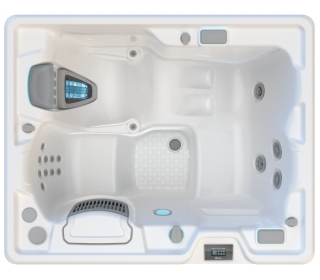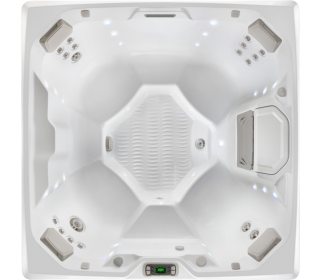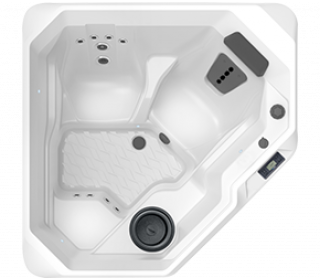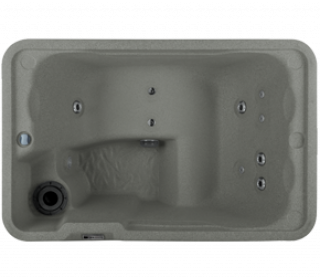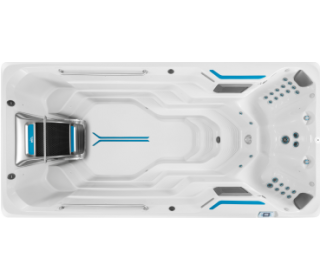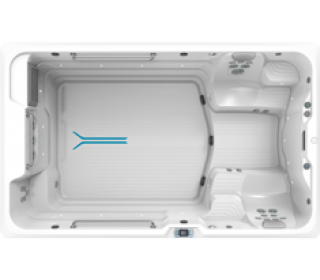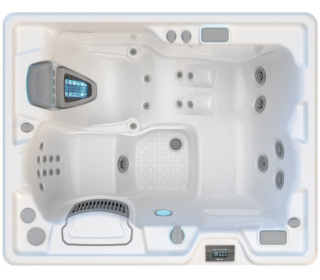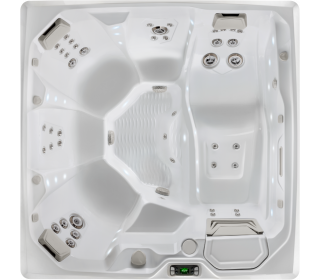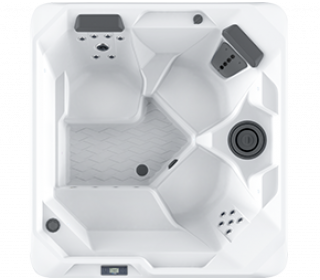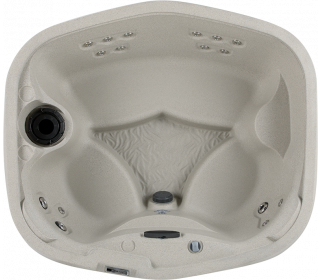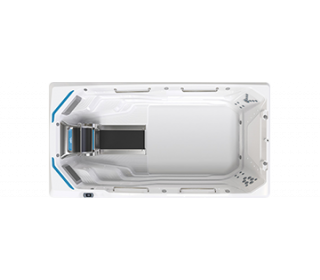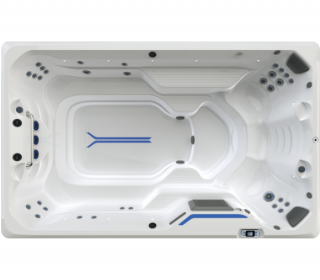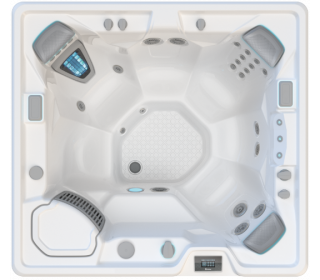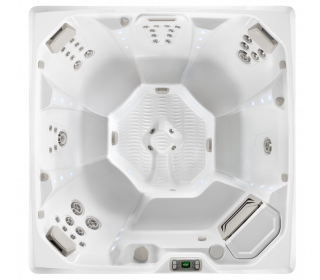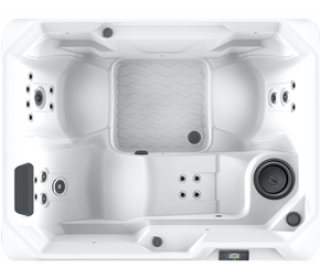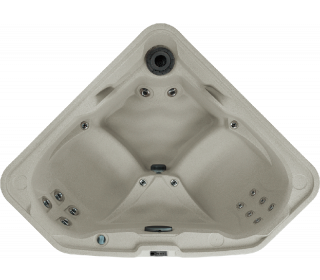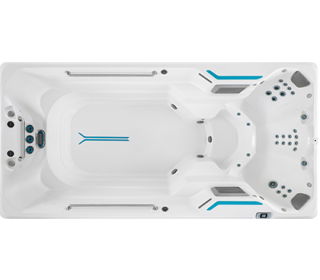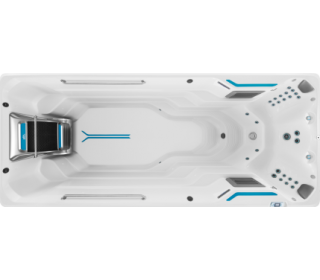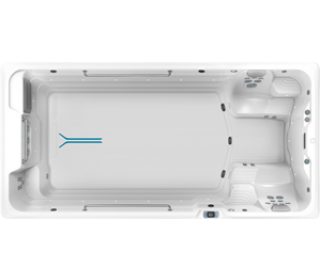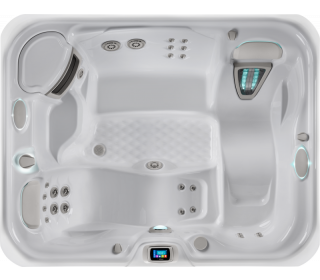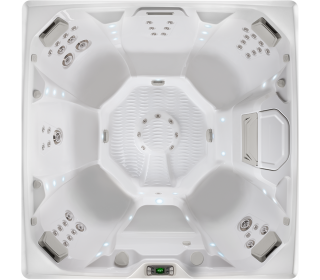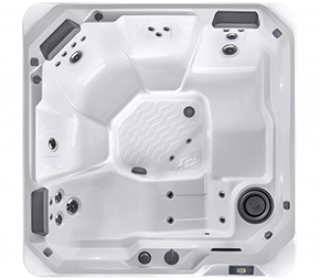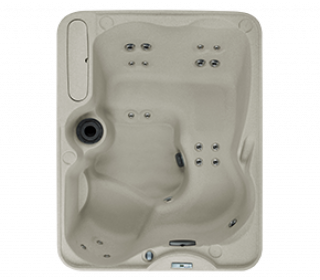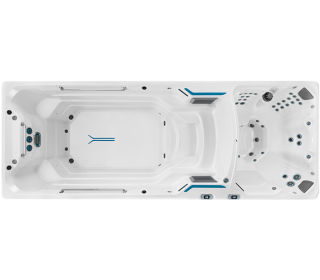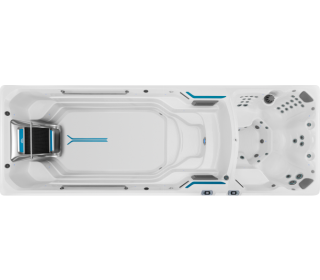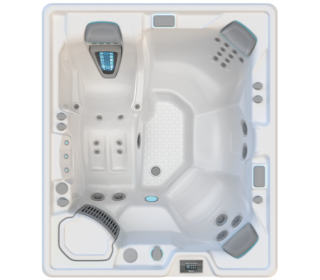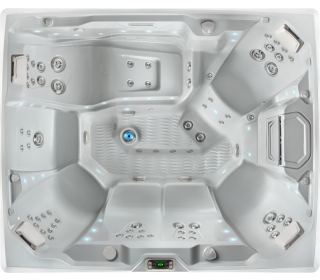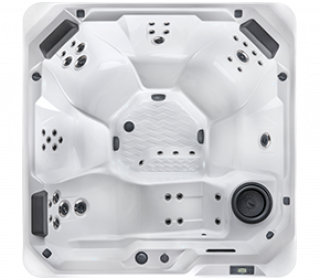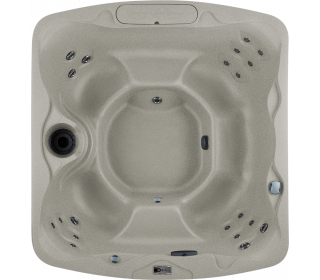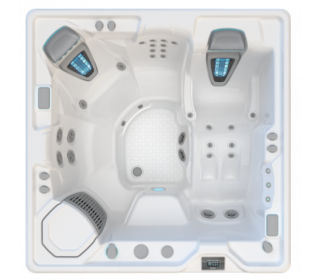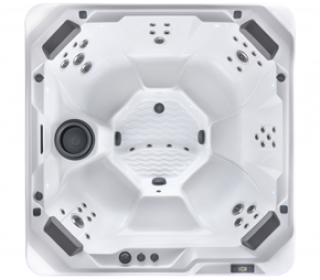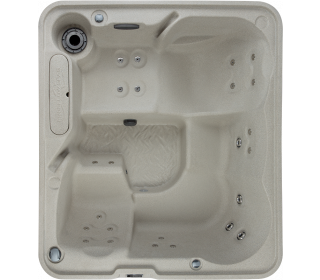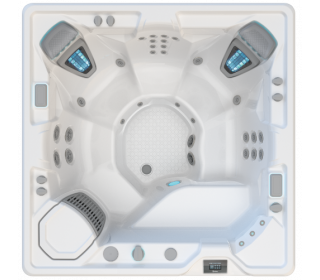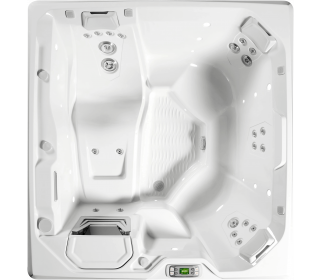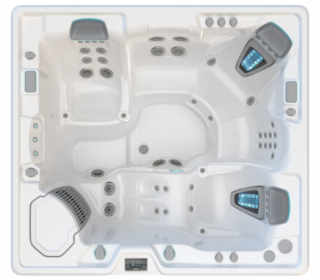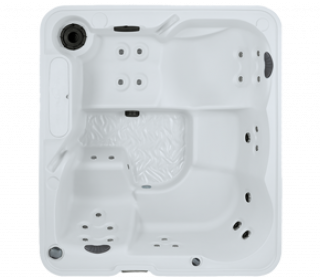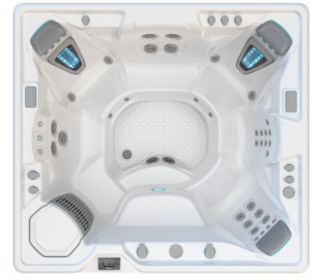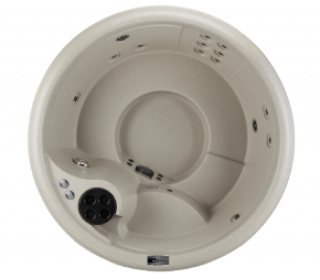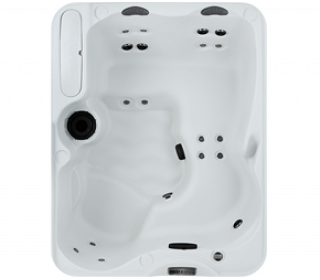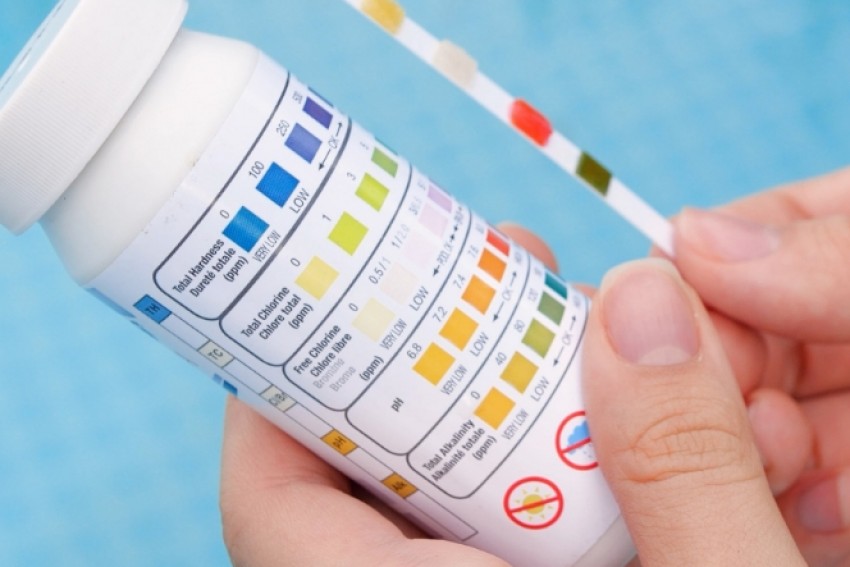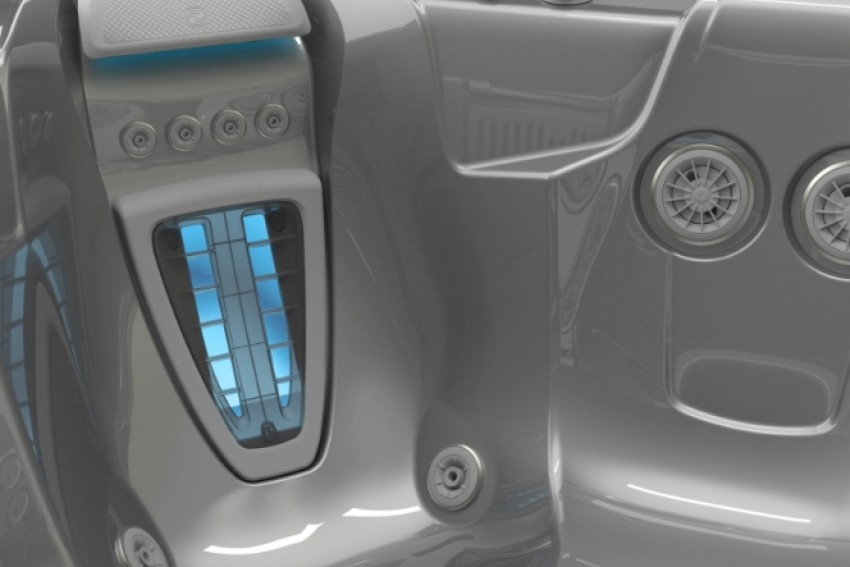Hot tubs are defined by the heat of their water – it’s right there in the name. More than anything else, the warmth of your spa pool is what makes a soak so luxurious and relaxing. Some have suggested that the temperature and pressure of the water replicate the comfort of the womb.
In a spa pool, retaining heat can be even more important than generating heat, as heat retention is key to keeping energy efficiency high and power bills low. A number of factors contribute to this heat retention, including insulation, the cover, and internal systems.
In this guide we’ll look at why spa pool heating and heat retention is important, the features that can improve a spa’s ability to retain heat, and the things you can do as an owner to ensure you keep the warmth in.
Why is spa pool heat retention important?
The sticker price of a spa pool only ever tells part of the story. Between power, water, chemicals and general upkeep, owners will face a number of ongoing running costs.
The best spa pools are designed to minimise these costs. They might be built from high quality materials to minimise the need for maintenance and repairs. Or they might feature water care systems that use less chemicals while keeping water fresher for longer, like the FreshWater Salt System.
But the most significant ongoing cost usually comes in the form of your power bill. Electricity powers spa pool features like the jets, lights, filters, water features, entertainment systems, and most prominently, the heater.
As any homeowner will know, heaters can use a lot of energy. The more efficiently and effectively you retain heat, the less you’ll need to use the heater, and the lower your power bill will be.
Ultimately spa pool heat retention can end up saving you thousands of dollars over the life of your machine, and using less power is as good for the environment as it is for your wallet. Spas that retain heat are also more comfortable, as you can enjoy a toasty soak for as long as you want, no matter how cold it is outside. In addition to saving you money, how long your spa takes to heat up can also be determined by the quality of materials being used within your spa pool.
5 key elements for spa pool heat retention
What makes a spa pool effective at retaining heat? When shopping for a new machine, focus on the following features:
Insulation
Spa pool insulation is the single most important factor in spa pool heat retention, as it keeps the warmth in and the cold out. The spa cabinet should be completely filled with insulation, as any gaps will allow more heat to leak out. It’s important to note that insulation is not created equal, so you should look for spas that feature high quality varieties such as FiberCor® and multi-density foam.

Cover
Heat rises, so your spa pool cover plays a key role in keeping heat in, particularly when the spa is not in use. Your cover, like your cabinet, should be packed with high quality insulation, and should be placed back on the spa as soon as you finish your soak. Look for covers that feature a waterproof membrane to ensure the insulation doesn’t become waterlogged.
Base plate
When the ground is cold, particularly in winter, the chill can travel up through the base of your spa. Some higher end spas feature purpose-built base plates that form an effective barrier to this cold.
Heat recycling systems
In the most innovative spa pools you’ll find systems that take otherwise wasted heat and inject it back into the water. At Hot Spring we realised that the heat generated by internal machinery was simply radiating away – so we designed our hot air induction jets, that capture this internal heat, and push it back into the spa via the hydromassage jets.
Heater
Your spa pool heating element is more focused on generating heat than retaining it, but it nevertheless plays an important role in keeping energy use down. A high quality heater will warm water more efficiently, and can therefore be used more sparingly, than a cheap and inefficient equivalent.
Best practices for retaining spa pool heat
While your choice of model will largely define how well your spa pool retains heat, there are a number of things you can do post-purchase to help retain more heat and reduce your power usage.
- Keep the cover on: Ensure your spa is always covered when not in use, as this is the most effective way to keep the heat in.
- Replace or upgrade your cover: If your cover is looking a little tired, if it feels at all waterlogged, if it doesn’t make a good seal with your spa, or if it lacks insulation, replacing or upgrading to a higher quality cover could do wonders for your power bill.
- Place your spa in a sheltered area: Keep your spa pool away from the worst of the cold, wind, rain and frost by placing it in a spot that offers some protection. If it doesn’t come with a base plate, consider placing it on an insulated mat.
The Hot Spring difference
The best way to maximise spa pool heat retention? Choose a Hot Spring spa pool.
At Hot Spring we pride ourselves on staying at the very leading edge of spa pool innovation by investing heavily in research and development, and by using only the highest quality materials and production techniques.
We’re also New Zealand’s oldest and most trusted spa pool brand, having spent over four decades helping Kiwis secure the spa pools of their dreams.
The result: our spa pools are the most energy efficient on the market – and we have the independent laboratory testing to prove it.
You don’t need to choose between luxury and cost-effectiveness. In a Hot Spring you get both, in a stunning machine that is built to last.
Ready to experience the Hot Spring difference? Get in touch with your local dealer today!


